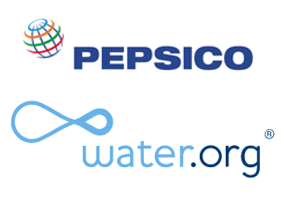
When the COVID-19 virus reached the southern region of Brazil, widow Dona Terezinha, 64, who lived with her grandson Willian in a rented home without a water connection, was confronted with a potentially life-threatening problem – how could she keep her family safe without access to clean water?
“Without water at home, it was very difficult,” she says. “There was no place to wash our hands and we had to use my neighbor’s bath at the risk of getting Covid-19 from other people.” Without water, Dona Terezinha and Willian were at great risk of exposure to the novel coronavirus and other illnesses.
A microloan was Dona Terezinha’s solution to her family’s water crisis. By financing an in-house water tap, she was able to give her family immediate access to safe and clean water at home, ending their water crisis now and ensuring they will have water long after the threat of COVID-19 is gone.
The pandemic has made clean water more critical than ever, yet the number of people who do not have access to this fundamental resource is staggering. Globally, more than 785 million people lack access to water, and in Latin America, more than 177 million people don’t have water at home. In Brazil, where Dona and Willian live, 3 million people don’t have access to water and 24 million lack access to improved sanitation, further inhibiting people’s ability to stop the spread of life-threatening diseases.
And the impact of limited access to clean water has further-reaching consequences than its impacts on health and safety. Every day, women and children around the world spend 200 million hours collecting water. Without that burden, imagine the impact on families, communities and economies if that time could be freed up. It would help unleash their inherent power and potential.
The world needs investments in innovative, scalable solutions that expand water access to benefit women, children and their communities. To do this, we must prioritize alliances with expert partners on the ground to create programs that attract sustainable sources of funding to help ensure long-term solutions for local communities. Partnerships need to look beyond financing to tap into each organization’s strengths – including technical expertise, capacity building, education and community programs – to maximize impact in high water-risk communities and achieve lasting systemic change.
We speak from experience – PepsiCo and Water.org have worked together for more than a decade on programs that empower people living in poverty with affordable, lasting access to safe water. And we’ve seen firsthand the positive ripple effect that comes from well-built programs. In Brazil, a new program to provide 15,000 loans, technical assistance and capacity building to families will help establish water systems that are lasting, dependable, and cost-effective. The program will directly benefit 52,000 people like Dona Terezhina and Willian, whose story reminds us of the value of water.
For Dona Terezinha and millions of women like her, access to clean water can turn problems into potential. When women are freed from the burden of water collection, they can focus on education, economic opportunities and improved health for themselves and those around them.
Securing safe water for families in need around the world must be an urgent priority for organizations that have the resources to make a meaningful impact. It’s a ripple effect, and it starts with one woman, one family and one community at a time.
Image credit: Water.org

Paula Santilli is the CEO of PepsiCo LatAm. Jennifer Tisdel Schorsch is President of Water.org.
Read more stories by Paula Santilli and Jennifer Tisdel Schorsch














